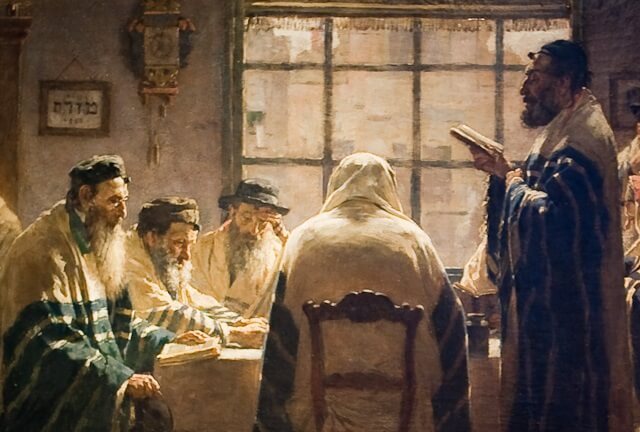
“ה', אָהַבְתִּי מְעוֹן בֵּיתֶךָ; וּמְקוֹם מִשְׁכַּן כְּבוֹדֶךָ.”
“O God, I love the abode of Your house, and the dwelling-place of Your glory.” (Psalms 26:8)
What is the difference between מְעוֹן בֵּיתֶךָ “the abode of Your house” and מְקוֹם מִשְׁכַּן כְּבוֹדֶךָ “the dwelling-place of Your glory”?
True Love and Self-Love
Rabbi Menachem Mendel of Kotzk, well known for his sharp-witted sayings, was a fearless champion of truth. Once he saw a young man enjoying a fillet of fish.
“Why are you eating the fish?” the rabbi asked.
Surprised by the question, the young man replied, “Because I love fish!”
“And is it because you love the fish so much that you killed and cooked it? If you really loved the fish, you would have let it live in the water!”
“The truth is,” the rabbi observed, “that you do not love the fish. You love yourself. Because the fish gratifies your appetite, you killed and ate it.”
Two Stages
This verse portrays the psalmist’s mental preparations for prayer. He first notes his delight upon entering a sacred place. “O God, I love the abode of Your house!”
As we develop feelings of love, they are connected to our sense of self. The love and pleasure we experience when entering God’s house are rooted in the awareness that we find ourselves in a place of sanctity. The soul is intoxicated with the uplifting experience of holiness and inspiration.
This love is bound to our self. We are aware we are standing in מְעוֹן בֵּיתֶךָ, in “the abode of God’s house.” The focus is on us, on our love and delight.
Then comes the higher level of מְקוֹם מִשְׁכַּן כְּבוֹדֶךָ. The holiness intensifies; the love is refined and purified. This is no longer a love where the self has a place. There is no longer a self-awareness that allows one to say, “I love.” There is no מעוֹן, no abode where I exist.
There is only an exceptional love without parallel in the physical realm, a love only found in the highest love of God. This love transcends any sense of an external observer.
There is only מְקוֹם מִשְׁכַּן כְּבוֹדֶךָ, “the dwelling-place of Your glory.”
This is the extraordinary experience of boundless, eternal love; it belongs to the state of heightened consciousness when “My flesh and my heart cease; God is the rock of my heart, my portion forever” (Psalms 73:26).2
With this great love, the psalmist is ready to engage in the majesty of lofty prayer.
(Adapted from Olat Re’iyah vol. I, p. 44)
1 Story told by Rabbi Abraham Twerski in Visions of the Fathers (ArtScroll, 1999).
2 Cf. Tanya chapter 43.
Illustration image: ‘The Mourning Days’ (Jan Voerman, 1884)





